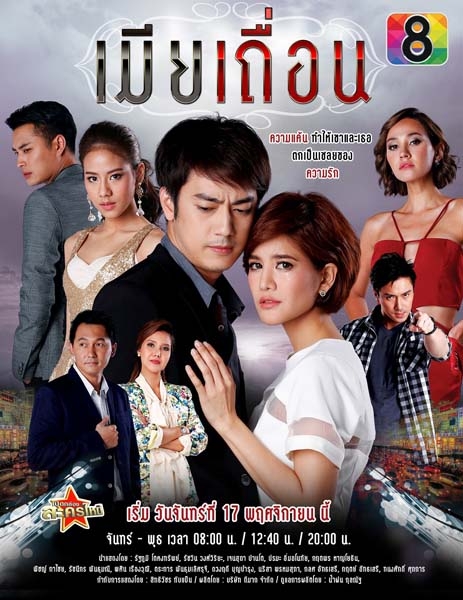Thai Dramas Glorify Unhealthy and Abusive Relationships
Introduction
Thai dramas, also known as lakorns, have gained immense popularity both domestically and internationally. These shows often feature intense romance, family conflicts, and dramatic storylines that captivate audiences. However, a recurring criticism of Thai dramas is their tendency to romanticize unhealthy and abusive relationships. The portrayal of toxic dynamics, including emotional manipulation, physical violence, and coercion, has led to concerns about the impact these narratives have on viewers. This article explores how Thai dramas glorify unhealthy relationships, the implications of these portrayals, and the need for more responsible storytelling.
The Romanticization of Abuse in Thai Dramas
One of the most troubling aspects of Thai dramas is their frequent depiction of abusive relationships as passionate or romantic. This is evident in several recurring tropes, such as:
1. The Aggressive Male Lead
Many Thai dramas feature a dominant and aggressive male protagonist who asserts control over the female lead. This often involves physical aggression, possessiveness, and emotional manipulation, which are presented as signs of love and devotion. For instance, forced kisses, kidnapping, and coercion are sometimes shown as acceptable expressions of affection.
2. Stockholm Syndrome Narratives
A common plotline in Thai dramas involves a female protagonist who falls in love with her abuser over time. This storyline promotes the dangerous idea that love can change an abusive person and that enduring suffering is a necessary part of romance. In reality, such relationships can be deeply harmful, and survivors of abuse often struggle with long-term psychological trauma.
3. Jealousy as a Sign of Love
Excessive jealousy and controlling behavior are often depicted as indications of true love. Male leads frequently exhibit possessiveness, restricting the female lead’s freedom and making decisions for her. Rather than being challenged, this behavior is normalized and even idealized in these dramas.
4. Lack of Consent in Romantic Interactions
Thai dramas sometimes depict non-consensual acts as romantic. Scenes where male leads forcefully kiss or touch female leads against their will are common, and these actions are often followed by the female character falling in love with her aggressor. This perpetuates the harmful notion that persistence and forcefulness are acceptable ways to win someone’s heart.
The Impact on Viewers
The glorification of toxic relationships in Thai dramas can have serious consequences on viewers, particularly young audiences who may internalize these messages. Some of the key impacts include:
1. Normalization of Abuse
When abuse is consistently portrayed as an acceptable or even desirable part of relationships, viewers may begin to see such behaviors as normal. This can lead to tolerance of toxic relationships in real life.
2. Distorted Perception of Love
By presenting unhealthy relationships as romantic, Thai dramas can distort viewers’ understanding of what constitutes a healthy partnership. Many fans may begin to associate love with suffering, jealousy, and control.
3. Reinforcement of Gender Stereotypes
These dramas often reinforce traditional gender roles, where men are dominant and aggressive while women are submissive and forgiving. This can perpetuate misogynistic attitudes and limit progress toward gender equality.
4. Influence on Real-Life Relationships
Viewers who idolize these fictional relationships may carry unrealistic expectations into their own romantic lives. This can lead to toxic dynamics where individuals tolerate mistreatment under the belief that it is a sign of deep love.
Why Do Thai Dramas Continue to Use These Tropes?
Despite criticism, many Thai dramas continue to romanticize abusive relationships. Some of the reasons include:
1. Cultural and Traditional Influences
In many Asian societies, including Thailand, traditional gender roles are deeply ingrained. Many lakorns reflect these societal norms, where male dominance and female submission are perceived as the standard.
2. Viewer Demand and Marketability
Drama producers often cater to audience preferences, and many viewers have become accustomed to these tropes. The intense emotions and dramatic conflicts make for compelling storytelling, keeping audiences engaged.
3. Lack of Awareness and Representation of Healthy Relationships
Many Thai dramas lack portrayals of healthy, respectful relationships. Writers and producers may not recognize the potential harm their narratives cause, or they may not see an incentive to change a formula that consistently attracts viewers.
The Need for More Responsible Storytelling
While Thai dramas are a form of entertainment, they also have a powerful influence on societal attitudes. There is a growing need for more responsible storytelling that promotes healthier relationship dynamics. Some steps that could be taken include:
1. Shifting the Narrative
Writers and producers should explore new ways to create compelling drama without glorifying abuse. Romantic storylines can still be dramatic and engaging without normalizing toxic behaviors.
2. Promoting Strong Female Characters
Female leads should be portrayed as independent, confident, and capable of making their own decisions. Rather than being passive recipients of abuse, they should be given stronger agency in their relationships.
3. Depicting Healthy Relationships
Thai dramas should include more examples of healthy, respectful relationships that emphasize mutual trust, communication, and consent. By showcasing positive role models, these shows can help shape healthier perceptions of love and romance.
4. Challenging Harmful Tropes
Instead of reinforcing outdated gender roles, Thai dramas can challenge these stereotypes and present alternative narratives that promote equality and respect.
5. Educating Audiences
Media literacy campaigns can help viewers recognize problematic portrayals in entertainment and distinguish between fiction and reality. Awareness programs can also encourage critical thinking about the messages conveyed in popular media.
Conclusion
Thai dramas have a significant cultural impact, influencing how audiences perceive love and relationships. However, the continued glorification of unhealthy and abusive relationships is a concerning trend that needs to be addressed. By shifting narratives towards healthier portrayals of romance, the entertainment industry can play a role in fostering more positive societal attitudes toward relationships. It is time for Thai dramas to move beyond toxic tropes and embrace storytelling that uplifts and empowers rather than normalizes harm.















